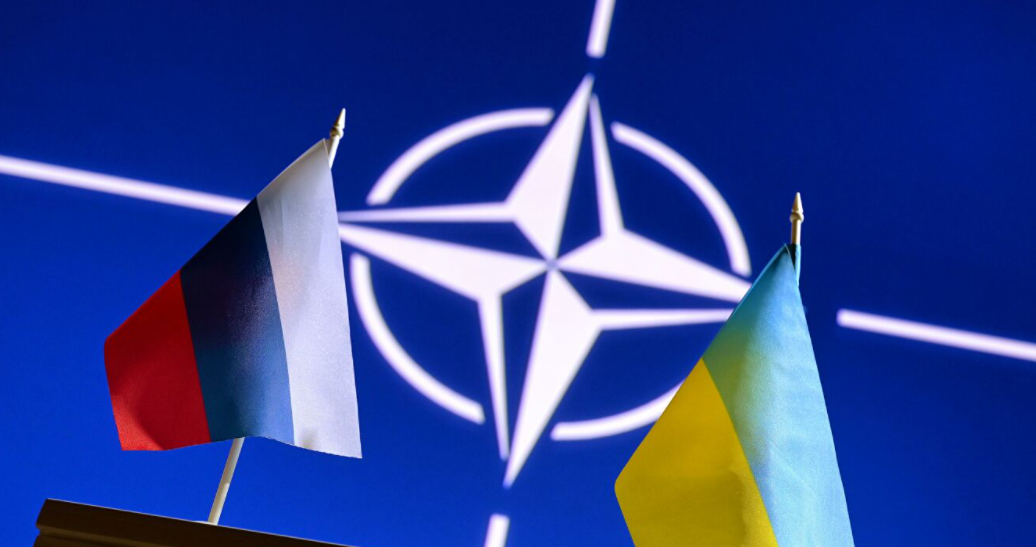Tue Jan 25, 2022
Tuesday / January 25
Russia-NATO tensions flare
NATO announced on Monday that it was adding more ships and warplanes to Eastern Europe in response to Russia's deployment of troops on the Ukrainian border.
The US Department of Defense said that about 8,500 American soldiers are on high alert, awaiting orders to deploy in the area if Russia invades Ukraine.
Pressing for transatlantic unity against Moscow, US President Joe Biden held a secure 80-minute video call with a number of European leaders from the White House Situation Room on Monday to discuss the Ukraine crisis.
"I had a very, very, very good meeting. Total unanimity with all the European leaders. We'll talk about it later," Biden said regarding his talk with leaders of Germany, France, Italy, Britain and Poland.
"The leaders underscored their shared desire for a diplomatic resolution to the current tensions and reviewed recent engagements with Russia in multiple formats. The leaders also discussed their joint efforts to deter further Russian aggression against Ukraine, including preparations to impose massive consequences and severe economic costs on Russia for such actions as well as to reinforce security on NATO's eastern flank," the White House said in a statement.
NATO has around 4,000 soldiers in multinational battalions in Estonia, Lithuania, Latvia and Poland, supported by tank, air defense, intelligence and surveillance units.
NATO said Denmark, Spain, France and the Netherlands all plan or are considering sending troops, aircraft or ships to Eastern Europe.
Ukraine shares borders with four NATO countries: Poland, Slovakia, Hungary and Romania.
Iran talks
Iran's foreign minister said on Monday Tehran was ready to consider direct talks with the United States if he thinks Iran can make a good deal with guarantees.
Western diplomats have said they hope to make some progress in the next few weeks, but sharp differences remain. Iran has denied any deadline imposed by Western powers.
Iran refuses to meet with US officials directly, which means that other parties— Britain, China, France, Germany, and Russia —have to hop back and forth between the two sides.
"Reports saying that Iran and the U.S. are directly negotiating with one another are untrue. However, if we get to a stage where reaching a good deal with strong guarantees necessitates direct talks with the US, we will consider it." Foreign Minister Hossein Amirabdollahian said at a news conference in Tehran.
Last year, Iran's Supreme Leader, Ayatollah Ali Khamenei, banned Iranian officials from meeting with Washington. A Western diplomatic source said Iran raised the issue of direct talks during its recent return to Tehran for consultations. The source said it was unclear whether Khamenei had given the green light yet, but that negotiators thought that direct contact at this stage would facilitate negotiations.
"We've heard nothing to that effect. We'd welcome it," Robert Malley, the US envoy to Iran, told Reuters.
Iran has rejected any US preconditions for reviving the 2015 nuclear deal, including the release of American prisoners held by the Islamic Republic.
Malley said on Sunday that the United States is unlikely to reach a deal with Iran unless Tehran releases the four US citizens Washington says it is holding hostage.
US stocks
Stocks in the US made a comeback Monday as investors bought tech shares.
The Dow Jones Industrial Average closed at 34,364.50, up 99.13 points, or 0.3%, for the first time in seven days. The S&P 500 finished the day at 4,410.13 points, up 0.3%. The Nasdaq Composite Index gained 0.6% to close at 13,855.13.
The Nasdaq Composite Index turned positive after falling as much as 4.9% at the start of the session. The Dow rose after falling 1,115 points at one point.
